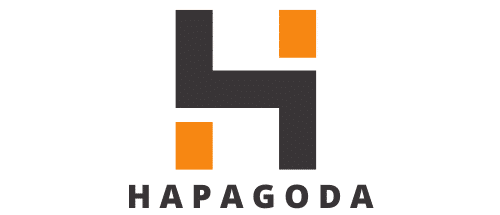With the rising demand for transparency in the pharmaceutical industry, blockchain technology is increasingly being viewed as a potential game-changer. As you navigate the digital landscape in today’s interconnected world, blockchain’s promise of decentralised, secure and transparent supply chain transactions is transforming various sectors. In the UK’s pharmaceutical industry, the potential benefits of blockchain are being recognized, with scholars and industry insiders exploring its use for drug supply chain transparency and security.
The Fundamentals of Blockchain in Supply Chain Management
Before we delve into how blockchain can enhance supply chain transparency, it’s crucial to understand the technology’s fundamentals. Born from cryptography and the need for secure, decentralised and transparent transactions, blockchain is a distributed ledger system. It’s a chain of blocks, each containing data, stored across multiple nodes or computers, ensuring security and minimizing the risk of data tampering.
A voir aussi : How Can Real-Time Traffic Monitoring Reduce Congestion in UK’s Largest Cities?
In supply chain management, blockchain’s decentralised nature allows different stakeholders – manufacturers, wholesalers, retailers, and consumers – to access the same information. This can lead to better transparency, traceability, and accountability across the supply chain.
The adoption of blockchain in supply chain management can also solve some pressing problems, such as counterfeit products, inefficiencies due to lack of real-time data, and limited visibility into supply chain operations.
A lire également : Cigar humidifier & luxury accessories
Blockchain and the Pharmaceutical Supply Chain: A Literature Review
To comprehend the potential of blockchain in the UK’s pharmaceutical industry, a brief review of recent scholarly literature and data is useful. Several papers published on Crossref, a well-known academic citation indexing service, have discussed the potential of blockchain in drug supply chain transparency and security.
Studies have suggested that blockchain can provide a robust solution for tracking and tracing pharmaceutical products. It can help verify the authenticity of drugs, prevent counterfeiting, and ensure that only compliant and safe medicines reach the end consumer. This can significantly enhance supply chain transparency, benefiting both businesses and consumers.
Moreover, the literature also touches upon challenges in blockchain adoption in the pharmaceutical industry. These include technological complexity, lack of standards and regulatory uncertainty, and need for collaboration among various stakeholders. These challenges need to be addressed for successful blockchain implementation.
Blockchain Adoption in the UK’s Pharmaceutical Industry: Challenges and Solutions
The adoption of blockchain in the UK’s pharmaceutical supply chain isn’t without its challenges. Understanding these challenges is the first step towards finding solutions and harnessing the technology’s full potential.
One of the primary challenges is the technological complexity of blockchain. Many in the industry lack the technical expertise to understand and implement blockchain-based solutions. To overcome this, there’s a need for education and training. Furthermore, engaging with blockchain technology providers can help in simplifying and customising solutions to cater to specific industry needs.
The lack of regulatory clarity is another key challenge. Blockchain’s decentralised nature can raise legal and compliance issues. To address this, regulators and policymakers need to provide guidelines that balance the need for innovation with consumer protection.
Finally, collaboration among stakeholders is crucial for blockchain’s successful implementation. Since blockchain involves multiple parties accessing the same data, trust and willingness to share information are key. Engaging all stakeholders early in the process and ensuring their interests are considered can foster collaboration.
How Blockchain Can Resolve Counterfeit Drug Issues
Counterfeit drugs are a significant problem in the pharmaceutical industry, posing threats to patient safety and company reputation. Blockchain’s unique features can help combat this issue.
With blockchain, every transaction or movement of a drug throughout the supply chain can be recorded and verified. This includes data about drug manufacturing, shipping, storage conditions, and dispatch to the end consumer. Such a system makes it easier to verify a drug’s authenticity, track its journey from the manufacturer to the end consumer, and detect any deviations or anomalies. This can help in identifying and preventing the spread of counterfeit drugs.
In summary, blockchain offers a promising solution for enhancing supply chain transparency in the UK’s pharmaceutical industry. From preventing counterfeit drugs to improving traceability and accountability, blockchain technology can revolutionize the way the pharmaceutical industry operates. However, to realize its full potential, businesses, regulators, and other stakeholders need to work together to address the challenges associated with its implementation.
Customising Blockchain Solutions for the Pharmaceutical Industry
In order to fully harness the potential of blockchain technology in the pharmaceutical industry, customised solutions are needed. Blockchain technology is not a one-size-fits-all solution and its implementation must be tailored to the specific needs and challenges of the pharmaceutical supply chain.
When it comes to the pharmaceutical industry, blockchain can be used to create a decentralised, secure and transparent system for tracking drugs from manufacturing to consumption. A system like this would use smart contracts, a key feature of blockchain technology, which are self-executing contracts with the terms of the agreement directly written into code.
In the case of the pharmaceutical industry, a smart contract could be created to verify and record every transaction in the drug supply chain. For instance, when a drug is manufactured, a transaction could be recorded on the blockchain. The same would happen when the drug is shipped, when it arrives at a wholesaler, when it is purchased by a pharmacy, and when it is sold to a patient. Each of these transactions would be verified and recorded in real time, providing full transparency and traceability.
This kind of blockchain-based system could also be used to verify the authenticity of drugs, preventing the spread of counterfeit drugs. If a drug doesn’t have a verifiable record on the blockchain, it could be flagged as potentially counterfeit.
Conclusion: Towards a Transparent and Secure Pharmaceutical Supply Chain in the UK
Blockchain technology holds immense potential to revolutionise the pharmaceutical industry in the UK. By employing a decentralised and transparent system, the supply chain becomes more secure and efficient, benefiting consumers, businesses, and regulatory authorities alike.
The adoption of blockchain can mitigate prevalent issues like counterfeit drugs and inefficiencies due to a lack of real-time data. With each transaction recorded and verified, the authenticity of drugs can be ensured, and stakeholders can gain full visibility into supply chain operations.
However, the journey towards a blockchain-enabled pharmaceutical industry is not without hurdles. Challenges such as technological complexity, regulatory uncertainty, and the need for collaboration are significant but not insurmountable. Through education, regulatory guidance, and multi-stakeholder cooperation, these obstacles can be overcome.
The future of the pharmaceutical industry lies in adopting innovative technologies such as blockchain. By leveraging blockchain’s unique features, the UK’s pharmaceutical industry can enhance supply chain transparency, improve accountability, and ensure patient safety. As we move forward, a collective effort from all stakeholders will be vital in harnessing the full potential of this transformative technology.










